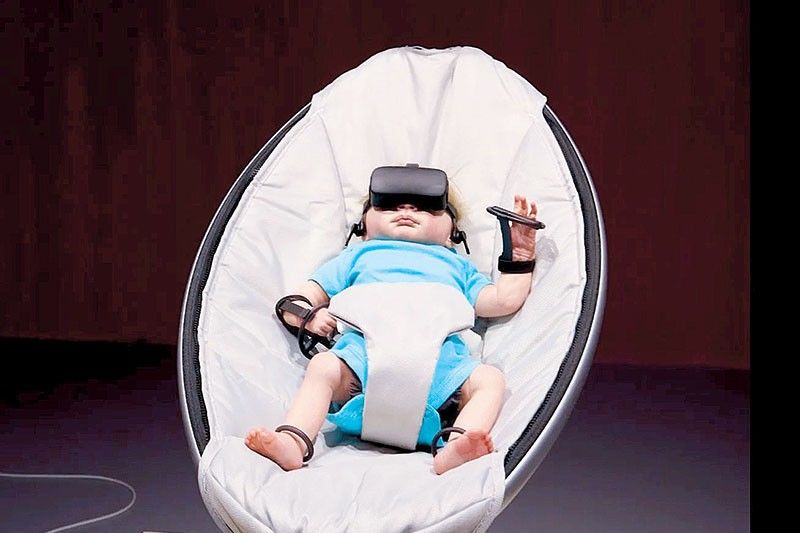In the era of AI, here comes Gen Beta

MANILA, Philippines — Imagine a generation crossing into the 22nd century. For the Generation Beta or babies born this year, they will likely still be alive – then 76 years old – by the dawn of the next century in 2101.
And their lives, according to social researchers, will be like no other.
Born between 2025 and 2039, this new generation of humans is expected to be “shaped by a tech-saturated world,” said McCrindle Research, an Australian social research firm led by generational analyst and demographer Mark McCrindle.
Gen Beta, it said, live at a time when “the digital and physical worlds will be seamless.”
“While Generation Alpha has experienced the rise of smart technology and artificial intelligence, Generation Beta will live in an era where AI and automation are fully embedded in everyday life – from education and workplaces to healthcare and entertainment,” McCrindle said.
“They will likely be the first generation to experience autonomous transportation at scale, wearable health technologies and immersive virtual environments as standard aspects of daily life,” it added.
Their formative years will also be marked by a greater emphasis on personalization, such as the use of AI algorithms to tailor major aspects of their lives, including learning, shopping and social interactions.
McCrindle said members of the Gen Beta will be raised in a changing society, with “climate change, global population shift, and rapid urbanization at the forefront.”
“Sustainability will not just be a preference but an expectation. This generation will be raised by Millennial and older Gen Z parents, many of whom prioritize adaptability, equality, and eco-consciousness in their parenting,” said McCrindle.
“This will result in Generation Beta being more globally minded, community-focused, and collaborative than ever before. Their upbringing will emphasize the importance of innovation not just for convenience, but for solving the pressing challenges of their time,” it added.
Connected, but
Parenting is also expected to change for the Gen Beta. While millennial parents were partial to using social media to document their children’s lives, McCrindle said Gen Z parents “are more likely to strongly agree that limiting their child’s screen time is a high priority for them.”
“As the most technologically savvy generation of parents, Gen Z see the benefits of technology and screen time, but equally they see the downsides of it and are pushing back on technology and the age at which their children access and engage with it,” it said.
The technology world that they will grow into, said the social research firm, will result in a “connected yet individualized” generation.
They will have to navigate friendships, education and careers “in an era where digital interaction is the default,” while at the same time “curating their own digital identities with safety and wisdom” driven by their parents.
“We predict Generation Beta will embody the balance between hyper-connectivity and personal expression. They’ll redefine what it means to belong, blending in-person relationships with global digital communities,” McCrindle Research added.
This generation, it added, will represent the dawn of a new era.
“They will grow up in a world shaped by breakthroughs in technology, evolving social norms, and an increasing focus on sustainability and global citizenship. Understanding their needs, values and preferences will be critical as we anticipate how they will shape the future of society,” added the firm.
According to McCrindle, they used the Greek alphabet to name the last two generations (Alpha and Beta) “to signify not just new generations, but the first generations that will be shaped by an entirely different world.”
This, it said, underscore how these generations will be raised in a new world of technological integration.
Gen Alpha are those born between 2010 and 2024. They will be aged 15 and under this this year.
- Latest
- Trending



























